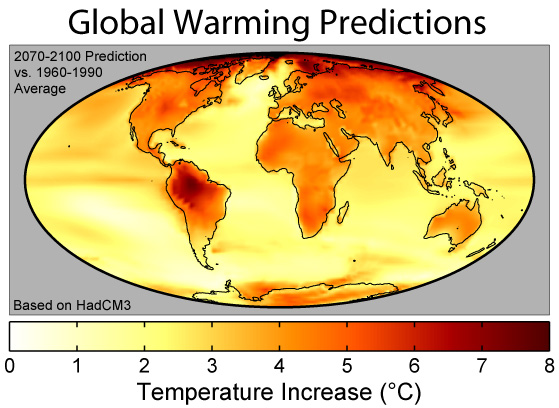By now, I hope that you have heard of the warning from UN scientists concerning the likely future of planet Earth if we continue emitting CO2 and other global warming drivers in our farms, factories, power plants, and vehicles.
The report says that we have to reduce our global carbon output to zero in only twelve years, or else face a future of more droughts, more violent storms, more floods, more refugees and mass migrations, more giant wildfires, more desertification, more ocean acidification, more death, more of everything that is associated with climate change. Here’s the link where you can read the report for yourself.
I have a bold prophesy for you: we will miss that target. We will miss it because the people who are in a position to do anything about it are also in a position to insulate themselves from the worst consequences.
Think of it by the following analogy. In the first decade of this century, there were plenty of warning signs that the global financial system was on the verge of breaking. This mostly had to do with sub-prime mortgage lending in the United States, though there were other factors, too. Some of the people who raised the warning were ignored; others were fired or otherwise censured. But the uppermost people knew the warnings were logically sound. They also knew they need not worry, because the government would bail them out. And that is exactly what happened. In the months following the banking crash of 15 September 2008, hundreds of banks and industrial corporations deemed “too big to fail” received bail-out money from the government, sometimes as direct cash injections, sometimes as purchase of shares, so they could continue producing their products and paying their workers and employees. (Many of the executive-level management also pocketed that money for themselves. That’s another scandal, but only tangentially relevant to my current argument.)
I think the same thing is going to happen regarding the warnings that the world’s climate scientists have sounded since the 1970’s. The super-rich will get a climate change bail-out. Never mind that as a class they are powerful enough to transition the world to a zero-carbon, green energy economy in less than ten years. Never mind that such a transition would be profitable for some of them. Never mind that some of them, taken individually, do have humanitarian and compassionate values. As a class, they will save themselves first.
They will squeeze as much money as they can from the fossil-fuel economy, mostly from the sale of their products but also, significantly, from governments, directly as subsidies or indirectly as tax breaks. They will use this money to build life-boats for themselves, in parts of the world where the effects of the coming climate catastrophe are likely to be less intense. New Zealand, for example.
In fact I strongly suspect that when certain celebrity industrialists say we should colonize Mars to make it harder for a war or an an asteroid impact or some natural disaster to destroy the human race, the phrase “the human race” does not mean all of us. It means, instead, a select class of uber-wealthy individuals who can pay to jump ship before it catches fire. It would amaze me, but not surprise me, if one or more Mars colonies are already in the early stages of pre-fabrication.
As for the rest of us: we shall have to continue doing all the things we are already doing to help prevent climate change: planting gardens, planting trees, consuming less stuff, rewilding landscapes, recycling waste, experimenting with regenerative agriculture, lobbying businesses and governments, voting for scientifically-literate politicians and parties, joining public education campaigns, and so on. But I believe we have to do these things in full knowledge that the work shall be of very little effect in the short term.
There is, however, another reason to continue doing those things: we should give to our descendents the knowledge of how to create and preserve a life-affirming and ecologically conscious human culture. If we preserve that knowledge, perhaps our decendants of six or seven generations from now could have such a culture, when fossil fuels have finally run out and the global climate settles down. If we lose that knowledge, it might take far longer to re-discover and re-invent it.
I am more optimistic about the next thousand years, than I am for the next hundred.

